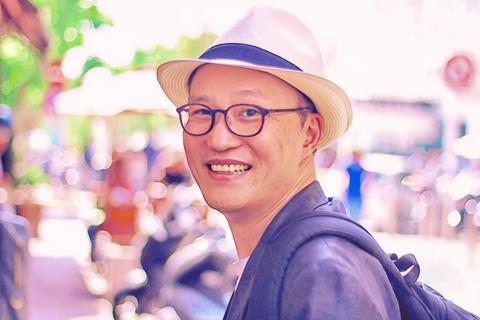
Renowned Korean producer Park Taejoon is in his first year as executive producer of Jeonju Project, the signature industry programme of the Jeonju International Film Festival.
He brings 20 years of film industry experience, which includes roles on Bong Joon Ho’s 2009 mystery drama Mother and 2013 sci-fi action feature Snowpiercer as executive producer and co-producer respectively.
Now CEO of production outfit Birdy Films, Park previously produced 2016 documentary Bringing Tibet Home and more recently basketball drama Rebound, which has scored sales around the world and been selected for Udine’s Far East Film Festival.
He will oversee the 15th edition of Jeonju Project, which comprises the Jeonju Cinema Project (JCP) pitching programme; the Jeonju Lab mentoring initiative; and a new Work In Progress showcase, launched to “improve the overall quality of Korean independent art films and support their domestic and international distribution”.
Ahead of the industry platform, which runs April 30 to May 2, Park discussed the “keys to the future of Jeonju Project”, celebrating 10 years of JCP and how his experiences as a young producer will inform his approach.
In your first year leading Jeonju Project, what are some key highlights or new developments?
If independent films can reach out to more people, documentary films can have wider distribution and short films can be made with fresher ideas and skills – these are the keys to the future of Jeonju Project.
To accomplish these, we’re enhancing our support programmes for business matching, funding and mentoring as well as revising the contracts in such a way that reinvestment for the next project is more possible. We’re also developing new long-term collaborations with OTT and distribution companies and organisations like the Producers Guild of Korea (PGK).
With a new Work In Progress section, Jeonju Project is expanding its eco-system from film lab and project development. How will this benefit independent filmmaking?
While the industry is always eager to find a good project, it’s truly a lonely job making an independent film or a documentary film. We simply help them make connections and make the filmmakers feel less lonely.
Through the Jeonju Lab, filmmakers will get feedback from experts in their field to develop their script and make plans for their project. Once the script is ready, they can shoot with some of the seed money through JCP: Next Edition and get post-production support through WIP after that.
“A film festival as a producer” is a special showcase to celebrate the 10th anniversary of Jeonju Cinema Project. How will JCP continue to support indie and art films going forward?
Through JCP, Jeonju IFF has taken the role of a producer offering funding support and creative freedom. It has invested in 33 independent art films since 2014.
It started out as an experiment. But now, with outstanding results, the name of Jeonju Cinema Project is a quality label on the radar of many leading film festivals. Some 10 JCP titles will be screened this year in the special section Jeonju Cinema Project: a film festival as a producer.
These include Lois Patiño’s Samsara, which just won the special jury award in the Berlinale’s Encounters section, and Damien Manivel’s Isadora’s Children, winner of best director at Locarno. Lee Chang-jae’s documentary Our President is unusual, attracting a record of more than 1.85 million moviegoers in South Korea.
In fact, Jeonju IFF has been involved in film production for more than 23 years, starting from the Jeonju Digital Project, which preceded JCP, setting up a unique model that one might call “a film festival as a producer”.
Were there industry programmes such as JCP for nurturing young filmmakers when you first started out as a producer?
When I was younger, I didn’t have options and it was extremely lonely. That’s why Jeonju Project is so important.
I’m now making a new documentary film with France, Sandera: Neither From Here Nor Elsewhere, which is shooting in Seoul and Gyeonggi province. It is so difficult to get funding and find distribution in advance even though I have attached a world famous director as executive producer and cast famous actress Lee Jung-eun for a small part. We had some support from KOFIC and Seoul Film Commission.

























No comments yet